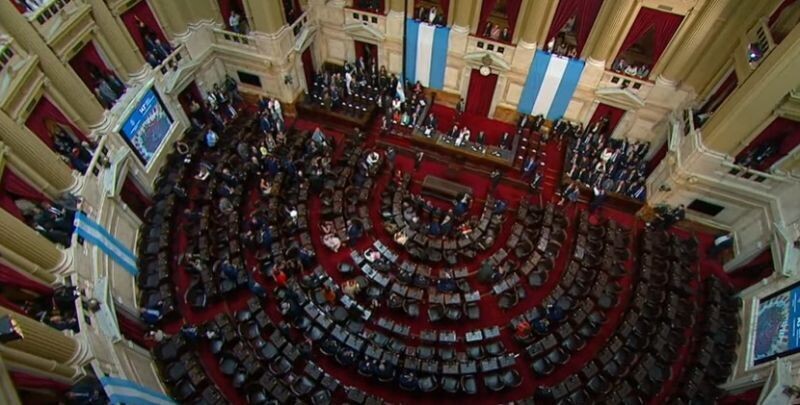
The Government of Javier Milei decided to send a Decree of Necessity and Urgency (DNU) that seeks to obtain Congress's support for the agreement with the International Monetary Fund (IMF). This measure has generated criticism from opposition lawmakers, who questioned the lack of transparency in the process.
Martín Menem, president of the Chamber of Deputies, mentioned that the DNU will be addressed in the Bicameral Legislative Procedure Commission. In this sense, several political leaders expressed their discontent and warned about the possible institutional and economic risks that this decision could entail.
On the other hand, Emilia Val, an expert in economic sociology, pointed out that it is unlikely that the IMF would invalidate the agreement if Congress does not reject it and the judiciary does not intervene. However, Agost Carreño described the measure as a "blank check" that undermines the principles of transparency and democratic control.
Esteban Paulón, a leader of the Socialist Party, recalled a failed attempt to reform the DNU regime in 2024, and highlighted that in 2021 Congress approved a law requiring that any borrowing program with the IMF goes through legislative procedures.
The deputy from the Frente de Todos, Itai Hagman, provided a technical analysis by stating that Law 27.612, promoted by former minister Martín Guzmán, establishes that any operation with the IMF must be approved by both chambers of Congress, which could lead to a judicialization of the agreement.
Amid the criticisms, Elisa Carrió, leader of the Civic Coalition, conditioned her support for the agreement. Oscar Agost Carreño, from Encuentro Federal, expressed his concerns about the economic implications that this new borrowing could have, pointing out possible negative consequences.
In summary, the Government's decision to use a DNU to obtain Congress's approval for the agreement with the IMF has generated a strong debate in the political arena, with various positions ranging from criticism of the lack of transparency to questioning the legality and institutional nature of the measure.














